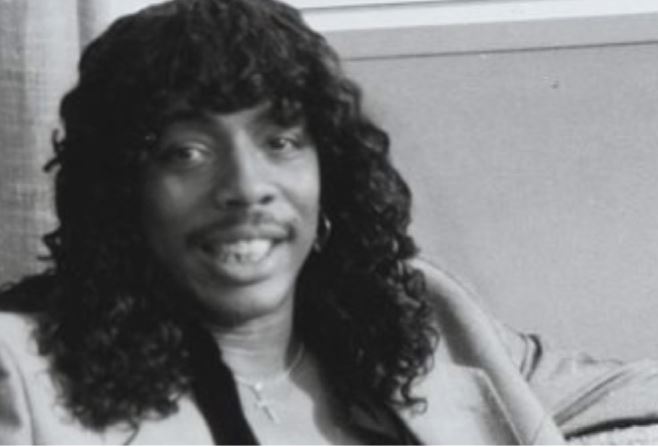[ad_1]
By Stacy M. Brown
NNPA Newswire Senior Correspondent
As a cultural icon, Rick James knew little boundaries.
In songs, videos and concerts, Rick James left nothing to the imagination. He romanticized – and by all accounts experienced – sex, drugs, and rock and roll like no other. His virtues, habits and desires routinely were in your face.
James peppered his songs with sexually suggestive lyrics like, “She’s a very kinky girl. The kind you don’t take home to mother,” and “She said she’d read a magazine that said I was a freak; you’ll never know now, little girl, unless you take a peek.”

When he died more than 15 years ago, James could have no idea that years later the #MeToo movement would shine a spotlight on celebrities and executives who have allegedly misused their fame, positions, and power to sexually harass and abuse women. And now, that spotlight has shifted to him.
In a new lawsuit filed against James’ estate in the Supreme Court of Erie County, N.Y., a woman alleges that the “Super Freak” singer raped her 41 years ago.
The unidentified woman, who said she was 15 at the time of the incident, is reportedly seeking $50 million in damages from James’ estate. She claims that in 1979, James visited the group home where she resided in Buffalo, N.Y., and raped her.
“He grabbed my hair and pushed my head into the pillow,” the woman stated in court papers. “He told me to ‘shut up and quit moving or I’ll cut you.’”
The woman filed the suit under the Child Victims Act, a measure that supersedes any previous statute of limitations on sexual assault against minors.
James, who died in 2004, once served two years in prison for assaulting two women while binging on cocaine in the early 1990s.
The timing of the lawsuit has raised eyebrows because James has been dead for so long, and the alleged incident happened many decades earlier. It also has some questioning whether the #MeToo movement has gone too far.
“As a woman who is unfortunately also a member of the #MeToo movement, I do believe some people’s coping mechanisms are going too far,” said Alexia Danielle Anast, a Las Vegas-based actress.
“I understand the hurt, shame, and mental discomfort that comes with being a victim of a situation like this, and if you’re able to get justice, that’s awesome,” Anast said. “However, if the alleged predator has passed, I don’t believe it’s fair to blame and, or, request monetary compensation from the family of the deceased.”
Dean Tong, a trial expert in the field of child abuse allegations who appeared as a commentator on Court TV during the late Michael Jackson’s child molestation case in 2005, believes the court should toss out the lawsuit against James.
“One must objectively look at the length of time relative to post-event recollection, and what’s happened to the accuser during the interim time frame,” Tong said..
“Memory is not a perfect videotape and deteriorates over time. [So] unless you possess a photographic memory, you’ll only recall gist memory – bits and pieces of the trauma – and won’t have verbatim memory,” he added. “This has been the biggest problem with the #MeToo movement — their rush to judgment mindset. The not considering how human memory works and the known fact that it’s fallible, along with the fact that the accused has an absolute right under the law to due process and the right to his day in court to contest controversial rape allegations.”
Psychologist Kahlil King said in cases like James, the best she can explain it is that the alleged victim “didn’t step forward because she wasn’t ready yet, and that’s OK.
“Many take issue with the timing that the accusers decide to tell their stories suggesting if it really happened they would have said something immediately,” King said. “This could not be further from the truth. Psychological trauma is long-lasting and can take years to overcome or even to learn to live with it. Like grief, there’s no time like for ‘letting go,’ or ‘getting over it.’ And, for many, this never happens.”
Ultimately, she concluded, “As long as women continue to have these horrific experiences, #MeToo should continue.”
Click here to view the lawsuit against James’ estate.
[ad_2]
Source link
